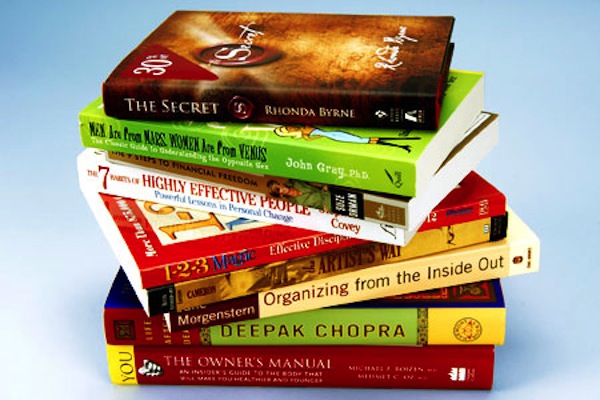
To read self-help is to take stock of one’s self and to ask what kind of life one wants to lead.
These are profound issues, and what the genre’s critics sometimes miss, too, is that self-help readers are well equipped to explore them. That’s because the people who buy these books are, like all book buyers, “pretty comfortable,” says John Duff of Penguin. “It’s going to be that middle-class person, reasonably well-educated” and in “very rarefied” company, as “our market for all books is really very limited. Most people stop reading when they leave school.” Those who don’t stop probably have their acts together. Call it the paradox of self-help. “The type of person who values self-control and self-improvement is the type of person who would seek more of it in a self-help book,” Whelan says. “So it’s not the unemployed crazy lady sitting on the couch eating potato chips who reads self-help. It’s the educated, affluent, probably fairly successful person who wants to better themselves.”
-Laura Vanderkam, in a City Journal article titled “The Paperback Quest for Joy”
I’ve never read a self-help book but I have had a good laugh scanning the titles in the self-help section of a bookstore before. Good times.
Leave a Reply